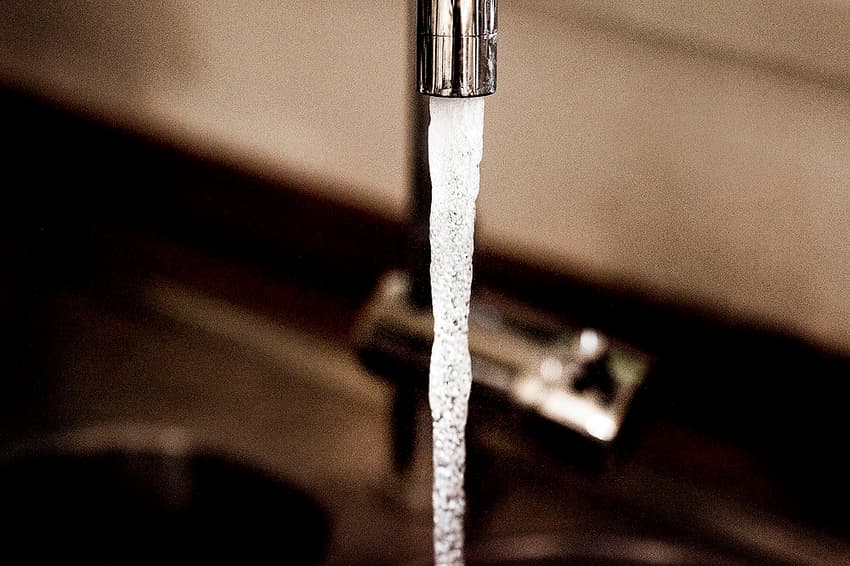Danish environment ministry to be probed over polluted water

Denmark’s National Audit Office (Rigsrevisionen) is to investigate the Ministry of Environment and Food over whether it did enough to ensure the quality of drinking water.
According to public access documents obtained by broadcaster DR, the public spending auditor will scrutinize the ministry over the issue.
Drinking water has come under the spotlight in Denmark in recent months after previously unseen pesticides were found in water in the country.
Four previous unknown pesticides have been discovered in Danish drinking water since 2017.
Last week, the pesticide chlorothalonil amidosulfonic acid was found in surface water in all parts of Denmark as well as in drinking water in the village of Ledøje in northeastern Zealand, DR reported.
Following that discovery, the Danish Patient Safety Authority (Styrelsen for Patientsikkerhed) said that the substance was a potential health hazard. Subsequently, residents in the village have had to collect water from a temporary tank in the village square since last week.
The National Audit Office does not comment on ongoing cases, and Minister for the Environment and Food Jakob Ellemann-Jensen did not wish to speak to DR about the issue.
“The Ministry of Environment and Food can confirm that it will, naturally, cooperate with the National Audit Office on this matter and submit any material they ask for,” the ministry told DR in a written comment.
“The investigation is expected to be completed in November, so there is therefore not yet a report issued by the National Audit Office to which the minister can respond,” it added.
Opposition politicians have criticized Ellemann-Jensen with regard to management of drinking water.
One of the substances found in source water was “a substance the environment ministry was warned about, but didn’t test for,” Social Democrat environment spokesperson Christian Rabjerg Madsen said.
Madsen also noted the situation in Ledøje.
“It is completely unacceptable, of course, (and) we should give Danes better protection of their drinking water,” he said.
READ ALSO: Denmark's waterworks to be tested after pesticide discovery
Comments
See Also
According to public access documents obtained by broadcaster DR, the public spending auditor will scrutinize the ministry over the issue.
Drinking water has come under the spotlight in Denmark in recent months after previously unseen pesticides were found in water in the country.
Four previous unknown pesticides have been discovered in Danish drinking water since 2017.
Last week, the pesticide chlorothalonil amidosulfonic acid was found in surface water in all parts of Denmark as well as in drinking water in the village of Ledøje in northeastern Zealand, DR reported.
Following that discovery, the Danish Patient Safety Authority (Styrelsen for Patientsikkerhed) said that the substance was a potential health hazard. Subsequently, residents in the village have had to collect water from a temporary tank in the village square since last week.
The National Audit Office does not comment on ongoing cases, and Minister for the Environment and Food Jakob Ellemann-Jensen did not wish to speak to DR about the issue.
“The Ministry of Environment and Food can confirm that it will, naturally, cooperate with the National Audit Office on this matter and submit any material they ask for,” the ministry told DR in a written comment.
“The investigation is expected to be completed in November, so there is therefore not yet a report issued by the National Audit Office to which the minister can respond,” it added.
Opposition politicians have criticized Ellemann-Jensen with regard to management of drinking water.
One of the substances found in source water was “a substance the environment ministry was warned about, but didn’t test for,” Social Democrat environment spokesperson Christian Rabjerg Madsen said.
Madsen also noted the situation in Ledøje.
“It is completely unacceptable, of course, (and) we should give Danes better protection of their drinking water,” he said.
READ ALSO: Denmark's waterworks to be tested after pesticide discovery
Join the conversation in our comments section below. Share your own views and experience and if you have a question or suggestion for our journalists then email us at [email protected].
Please keep comments civil, constructive and on topic – and make sure to read our terms of use before getting involved.
Please log in here to leave a comment.